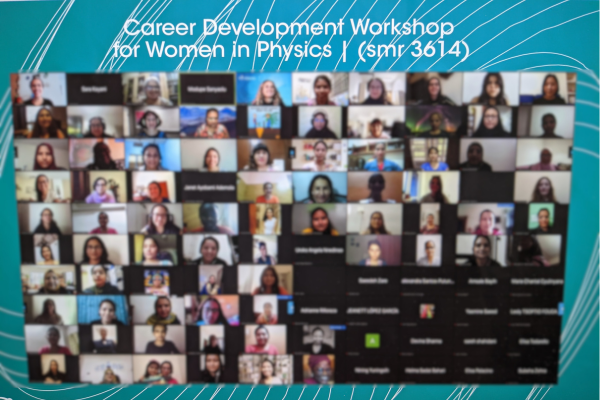This weekend, I’ve had the pleasure of attending Women Who Code: CONNECT Asia 2023 with the conference fee waived. I am an absolute beginner with barely a foot into the tech door, so I was grateful for the opportunity to peek behind the curtain and meet the community.
To date, I have attended three professional conferences for women:
A one-day online event for with technical talks/workshops and career networking sessions for women in the tech, from absolute beginners to leaders in the industry. This conference was held in the Asia and Oceania time zone. (The observation on the timezone was from a participant who has been in tech for a while and always had to attend conferences when it’s nighttime in Asia!)
A three-day online workshop hosted by the International Centre for Theoretical Physics (Trieste, Italy) for women physicists, especially at the early-career stage. The goal was to discuss experiences, network and attend workshops on career-related skills: writing academic CVs, crafting presentations, negotiating in academia, building networks and seeking mentorships and collaborations.
This was a week-long conference for women in science in the developing world. It was held on a virtual platform, but (compared to the other two) “classical” in the academic sense that there were talks in parallel sessions and poster sessions where participants present results of their research. There were panel discussions about the effect of the pandemic, about sex and gender in science, and others.
A welcoming atmosphere
The three different conferences I’ve attended casted large nets: women who code (in Asia), women physicists and women in science in the developing world. Women are a minority in most of these spaces: in tech, in physics and in science (or STEM) as a whole. Part of the conferences’ goals are related to fostering the community, and empowering women in their professional roles.
When I attended the conferences, I felt welcome. My interactions were almost always positive and people are eager to help. Participants, regardless of what career stage they’re in, were generally open to listen and share. Just being in these meetings made me feel seen.
Shared experiences and wanting mentors
It always helps to know there are others going through similar things as you. Listening to how they pushed through their sets of challenges helped me a lot. I like that a lot of talks in these conferences outline the speakers’ difficulties, their failures and how they managed to find ways around them or through them. Their narratives always include a personal backdrop – the cultural background, how parents, partners, peers and children influence their journeys, and the unique quirks in their situations. It’s truly a gem – because having the context behind career stories paints a fuller picture – rather than just highlights on a timeline, hiding the “personal” behind a curtain.
For the Physics and Tech meetings – there were chances to have breakout rooms where participants were encouraged to share their experiences and their goals. It feels very meaningful to network this way.
Another thing about being a woman in STEM is the lack of “role models”, or generally, just people like yourself who you might want to turn to (hence the quotation marks). When I worked as an assistant professor in Japan, I taught classes in the engineering department where less than 10% of the students were women. As a researcher in physics and engineering, women like me were outnumbered in every room we enter. So in the women’s conferences I attended, participants and organizers recognized the importance of establishing a support network or a community that can equip us with tools that can help us navigate our spaces. And what a dream if you can find a mentor that understands what you’re going through.
The importance of supportive communities
In my experience with academia, the larger, more prestigious the workplace, the more competitive the environment feels. I worked for several institutions like this; but for one of my postdoc positions, I worked in a smaller university that housed a reputable research center. What I found was that working in a smaller institute fostered a better work environment for me – my success was everyone’s success, and everyone else’s success was also mine. We celebrated each other’s achievements. It’s easier to work together when you don’t see your colleagues as your competitors — for me, at least! (Although, I believe I’m not alone in this way of thinking)
This was also how I felt attending these women’s conferences. I felt like I was in a space where I was supported and encouraged to grow. I appreciated the feeling that somewhere out there, there is a whole community of women who are willing to have your back. They were more than willing to share their resources and advice on how they got over their own hurdles.
To put everything simply, I am very grateful that these conferences are being organized and that communities for women exist.
If you are a woman in STEM, I highly encourage you to connect with others like yourself. I hope you can grow and foster those relationships. And if you are in a position where you can be a mentor someone, I hope you become their ally or even their advocate – the one that you yourself would have wanted to have when you were still in their shoes.
And if you are not a woman, but are mentoring women, I hope you can listen, recognize barriers that prevent women from succeeding, and be part of the solution.
-Jess
